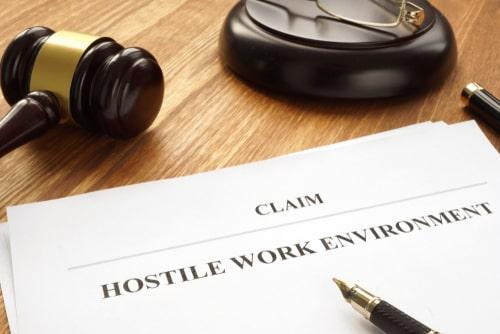Wheaton Office |
St. Charles Office |
Sycamore Office
 630-665-7300
630-665-7300
Madison County, IL, Settles Sexual Harassment Lawsuit
 A settlement has been reached in a sexual harassment lawsuit against Madison County, Illinois. The substantial settlement amount – $850,000 – was awarded to the plaintiff, an employee of Madison County, who alleged that a former Madison County board member repeatedly sexually harassed her. The plaintiff then alleged that in addition to the board doing nothing to stop the harassment, she was fired for complaining.
A settlement has been reached in a sexual harassment lawsuit against Madison County, Illinois. The substantial settlement amount – $850,000 – was awarded to the plaintiff, an employee of Madison County, who alleged that a former Madison County board member repeatedly sexually harassed her. The plaintiff then alleged that in addition to the board doing nothing to stop the harassment, she was fired for complaining.
The details in this case reflect circumstances that are often faced by victims of workplace sexual harassment. Below we will explore some of these circumstances, the relevant laws, and what you can do if you face sexual harassment at your place of employment.
A Hostile Work Environment
There are two primary categories wherein behavior of a sexual nature constitutes sufficient sexual harassment to file a civil lawsuit. One of the cases is called “quid pro quo” – when one person promises a job or a favor at work, such as a promotion, in exchange for sexual favors.
The other category – “hostile work environment” – is the one involved in the aforementioned case against Madison County. According to state and federal law, a hostile work environment is created when the sexual harassment interferes with the victim's job performance or creates an offensive, hostile, or intimidating workplace.
In this case, the alleged behavior – including offensive and inappropriate language, notes, harassing emails, calls, and texts – was found by the judge to contribute to a hostile work environment.
Workplace Retaliation
Shortly after the victim complained of the sexual harassment, she claims she was placed on leave and then fired. Under Illinois law, an employer is liable if an employee is sexually harassed by supervisory personnel and then suffers an adverse employment action – even if the employee does not report directly to the harassing supervisor. Federal law also prohibits retaliation for reporting sexual harassment.
Take Action Against Harassment
The victim in this case was able to successfully win her suit, in part because she established a record of the harassment and took steps to show the behavior was unwelcome. She immediately left the situation, avoided her harasser, and showed evidence of the harassment to people in senior positions at the board.
In a recent post, we discussed best practices for proving sexual harassment in the workplace. Sexual harassment lawsuits are more likely to succeed when victims can provide evidence and have witnesses who are able to support their claims.
Contact an Illinois Discrimination Attorney
If you have experienced sexual harassment at work, contact an experienced Wheaton, IL sexual harassment lawyer with Mirabella, Kincaid, Frederick & Mirabella, LLC to discuss your claim. We can help you understand your rights and options under the law. Call us today at 630-665-7300 to schedule a confidential consultation.
Sources:
https://www2.illinois.gov/
https://www.eeoc.gov/statutes/title-vii-civil-rights-act-1964
https://www.mdjonline.com/


 Read More
Read More





